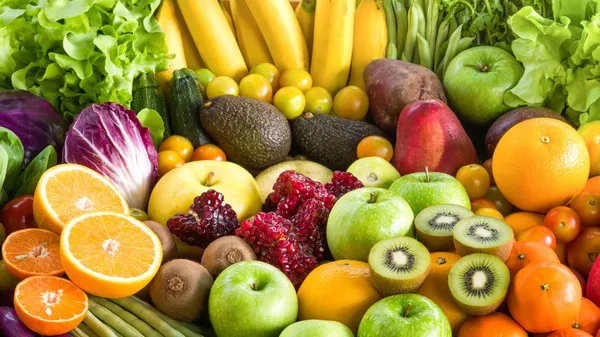Vitamin B7, commonly known as biotin, is a water-soluble B-vitamin that plays a vital role in maintaining healthy skin, hair, and nails. It is also essential for the metabolism of carbohydrates, fats, and proteins. While biotin deficiency is rare, ensuring an adequate intake of this important vitamin is crucial for overall well-being. In this article, we will explore the world of vitamin B7-rich foods, providing a comprehensive guide to help you incorporate this essential nutrient into your diet.
1. Understanding Vitamin B7 (Biotin)
The Importance of Biotin
Biotin, also known as vitamin H, is essential for various bodily functions, including energy metabolism, cell growth, and maintaining healthy skin, hair, and nails.
Daily Recommended Intake
The Recommended Dietary Allowance (RDA) for biotin varies by age and sex but generally falls between 30 and 100 micrograms (mcg) per day for adults.
2. Natural Sources of Vitamin B7
Animal-Based Foods
Egg Yolks: Egg yolks are rich in biotin, with one large egg containing approximately 10 micrograms of biotin.
Liver: Liver, especially beef liver, is a significant source of biotin, providing around 30 micrograms per 3-ounce serving.
Meat: Meats like pork, chicken, and turkey contain biotin, contributing to your daily intake.
Plant-Based Foods
Nuts and Seeds: Almonds, peanuts, sunflower seeds, and walnuts are packed with biotin. A small handful of nuts or seeds can provide a substantial amount.
Legumes: Legumes such as soybeans, lentils, and chickpeas are excellent plant-based sources of biotin.
Vegetables: Certain vegetables like sweet potatoes, spinach, and broccoli contain biotin, albeit in smaller amounts compared to other sources.
Whole Grains
Whole grains like oats, wheat bran, and brown rice also contribute to your biotin intake.
3. Dairy and Dairy Alternatives
Milk
Dairy products like milk and cheese contain biotin, with a one-cup serving of milk offering approximately 0.3 micrograms.
Yogurt
Yogurt is another dairy product rich in biotin, making it a nutritious addition to your diet.
Dairy Alternatives
Fortified dairy alternatives such as almond milk, soy milk, and coconut milk can also be good sources of biotin.
4. Biotin in Seafood
Fish
Certain types of fish, including salmon and sardines, contain biotin and offer additional health benefits from omega-3 fatty acids.
Shellfish
Shellfish like oysters and mussels are nutrient-dense and provide biotin along with other essential vitamins and minerals.
5. Cooking and Biotin Retention
Cooking Methods
To retain the maximum biotin content in your foods, opt for cooking methods that minimize heat exposure. Steaming, microwaving, or sautéing at lower temperatures can help preserve biotin.
Raw vs. Cooked
In some cases, raw foods may contain more biotin than cooked foods. Incorporating a variety of both raw and cooked biotin-rich foods can provide balanced nutrition.
6. Supplements and Biotin Enriched Foods
Supplements
If you struggle to meet your biotin needs through food alone, biotin supplements are available over-the-counter. However, it’s essential to consult a healthcare professional before adding supplements to your routine.
Biotin-Enriched Foods
Some food products, such as breakfast cereals, are enriched with biotin to boost nutritional content.
Conclusion
In conclusion, vitamin B7, or biotin, is a crucial nutrient that supports various aspects of overall health, including skin, hair, and metabolic functions. To ensure you’re getting an adequate intake of biotin, incorporate a variety of biotin-rich foods into your diet. From eggs and meats to nuts, seeds, and dairy products, there are numerous options available to meet your biotin needs. Whether you’re an omnivore, vegetarian, or vegan, there are plenty of dietary sources to choose from. Remember that a balanced diet that includes a variety of foods will not only provide biotin but also offer a wide range of essential nutrients for optimal health.


